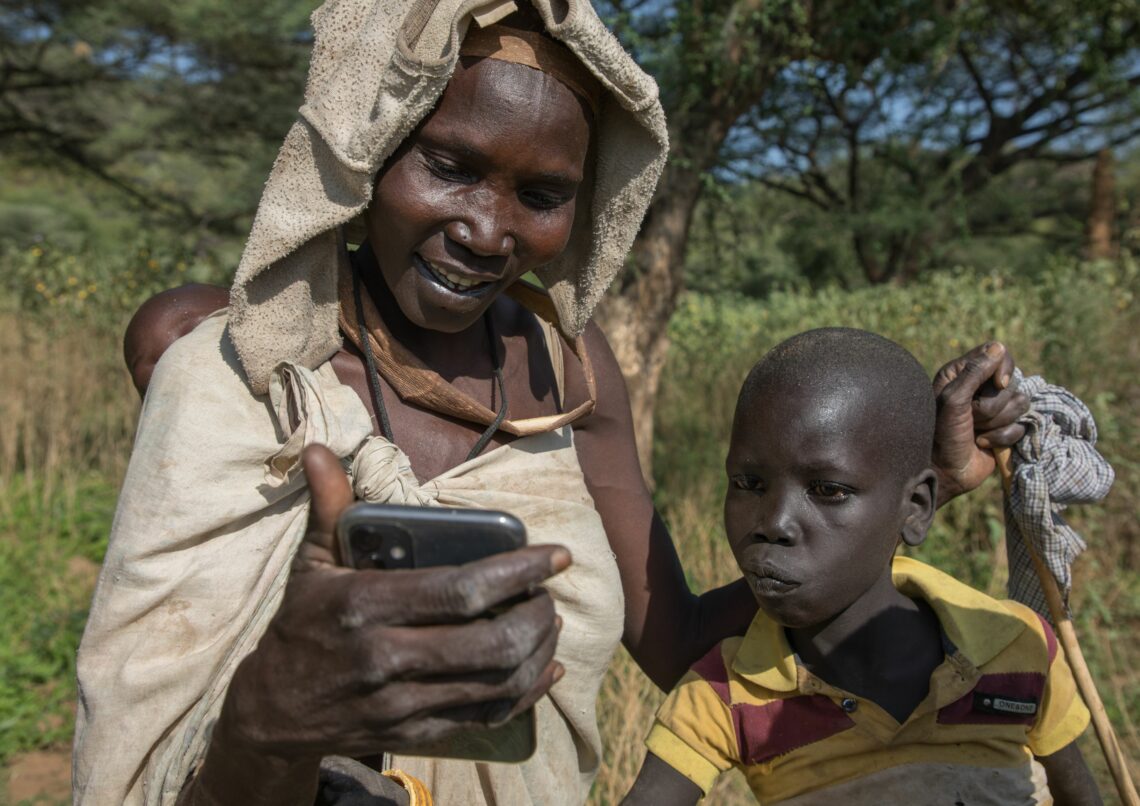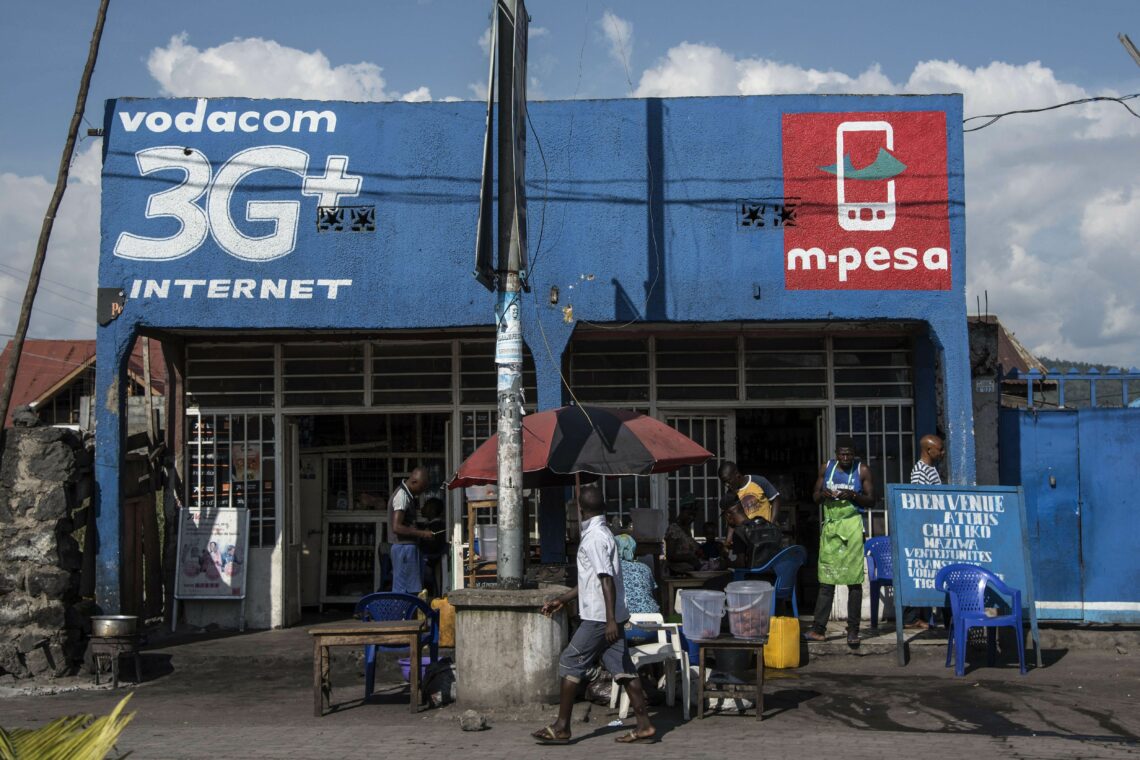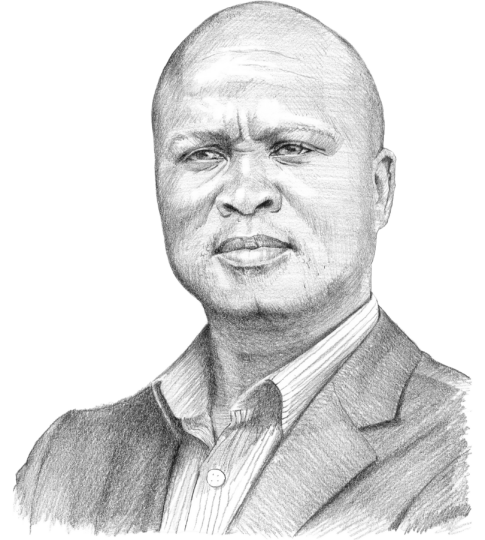Political roadblocks to Southern Africa’s digital revolution
Governments in Southern Africa talk a big game about fast-forwarding the digital transformation. But for the leaders in the region, the choice between bridging the digital divide and keeping their grip on power is no choice at all.

In a nutshell
- Southern Africa has committed to expanding the internet’s reach
- Doing so, however, threatens entrenched interests in the region
- Progress in the digital economy sector will continue to move slowly
The Southern African Development Community (SADC) has repeatedly identified the digital economy as a crucial element in advancing economic and social progress. In 2001, it adopted a declaration on information and communication technology (ICT) that urges member states to build “a coherent regional policy” for ICT that “bridges the divide between the region and the rest of the world.” In 2012, the organization’s Regional Infrastructure Master Plan envisioned building a “Digital SADC” by 2027. The question is whether Southern Africa is making any progress toward these goals.
Most of the region’s poor and disadvantaged live in rural areas where ICT infrastructure is completely or nearly nonexistent. The Covid-19 pandemic shined a spotlight on the digital divide between urban and rural communities. City dwellers under lockdown – especially those who live in affluent suburbs – have been able to acquire services via the internet, while people in rural areas must wait in long lines or do without services altogether.
The widening digital gap has raised both human rights concerns and questions about whether the SADC member states can build integrated, inclusive economies. Complex challenges and contradictory policies have prevented a rapid digital transformation and hindered ICT penetration. Rural communities have been left behind.
Meager progress
Botswana and South Africa, both of which have robust internet infrastructure, have tried to expand digital connectivity through mobile technologies like cell phones by adopting universal access and service funds (UASFs). Such funds are public and typically financed by contributions from mobile network operators and other telecommunications firms, allowing governments to pay for digital infrastructure in areas where it would not be profitable for private companies to do so. Lesotho, Namibia, Malawi, and Mozambique have adopted similar policies.
The government has proven unwilling to eliminate burdensome regulations hindering digital investment.
Southern Africa also has a framework in place that governments can use to draft legislation to drive digital transformation. Nevertheless, so far progress in bridging the digital gap has been piecemeal and has not improved economic performance. South Africa has a relatively complex digital network infrastructure and mobile companies that are giants on the continent. Still, it has been sluggish in implementing global-standard ICT policy. The government has proven unwilling to eliminate burdensome regulations hindering digital investment.
Obtaining digital services remains too expensive for many. Vodacom and MTN, two mobile service providers, have been hauled before South Africa’s competition commission and parliament several times on allegations of price-fixing and milking customers to the point of undermining access. Throughout the region, some mobile service providers are becoming entrenched monopolies. Governments have not focused on increasing competition, while these giants have gained excessive influence over ICT policy. Regulation of this complex, ever-evolving sector is tricky, and governments have struggled with the task. Some are still debating how to tax services like Netflix, while the rest of the world zooms forward to embrace the Fourth Industrial Revolution. All the while, the urban-rural digital divide remains firmly in place.
Restricting access
The lockdowns implemented to block the spread of Covid-19 made life much harder for people in rural areas, who were unable to obtain digital services. Bringing them online will greatly improve their quality of life. Yet despite commitments from authorities to increase internet availability, leaders seem hesitant, worried at the prospect that the rapid spread of digital technology could bring social upheaval. Some political leaders believe that open access to information on the internet – including political content – will breed dissent. Many countries in Southern Africa have adopted legislation allowing governments to limit the internet where they believe it could be used to drum up opposition.

In fact, it is common for African governments to shut down social media platforms or the internet while elections are underway. In Uganda, for example, the government did just that during the January 2021 elections: social media platforms were unavailable and internet access was limited. The Zimbabwean government has used its cyber laws to harass journalists and activists. It has also curtailed internet use during tense political moments in the country. Zambia will hold elections in August 2021 and already the opposition is worried that the government will introduce laws restricting the use of the internet and social media.
In countries where it is difficult for the government to openly limit the internet and online political content, some politicians claim opposition movements are creating “fake news” to justify clamping down on them. During the Covid-19 lockdown in South Africa, the government prosecuted purveyors of “fake news,” even though some senior government officials themselves had clearly been taken in by conspiracy theories and were spreading fake news themselves.
Leaders do not see extending internet access to isolated rural communities as a strategic advantage.
With governments suspicious of allowing increased access to information, technology investors have become jittery. The deregulation necessary for their businesses to flourish would bring forth the very openness leaders want to avoid. Leaders do not see extending internet access to isolated rural communities as a strategic advantage that could boost their countries’ economies and influence. Instead, they are more concerned with maintaining the domestic balance of power. That is why SADC states have not taken a more aggressive stance toward accelerating rural internet availability.
Stunted sector
For their part, companies that want to invest in the ICT sector in the region find it difficult to operate where leaders shut down the internet on a political whim. With governments so hesitant to give citizens access to information, tech firms worry they will get caught up in political conflicts. Moreover, the ICT sectors in these countries are riddled with patronage, with politicians maintaining tight control over who can invest. Though various ICT legislative proposals show Southern Africa is heading in the right direction, the problem is in implementing those policies.
Governments will be determined to pass laws that regulate access to the internet.
The Covid-19 pandemic has demonstrated the economic and social cost of the digital gap that persists in the region. Improvements will depend on the balance of political power, where governments see the internet as a destabilizing force. The ICT sector is prone to intense policy conflicts among major stakeholders, more so in African countries, where the market is still nascent. As a result, the proper regulatory frameworks remain unimplemented. Some of the policy challenges will not be resolved, and debates regarding access will persist in the medium term.
Scenarios
Some parts of the SADC are experiencing political upheaval, as people obtain information despite dominant political parties’ best efforts. Elections are becoming increasingly contentious. Governments will be more determined to pass laws that seek to regulate the internet, while at the same time trying to convince nations that they are making progress toward building a free and open digital world where rural communities can gain access.
Nongovernmental organizations face the tough task of campaigning for internet availability while at the same time ensuring that governments do not pass laws that ultimately control content. Communities are gradually moving on their own to embrace the inevitable shift toward digital activities. Policymakers are simply leading from behind when it comes to ICT transformation in the region, resulting in lost opportunity for investment.






